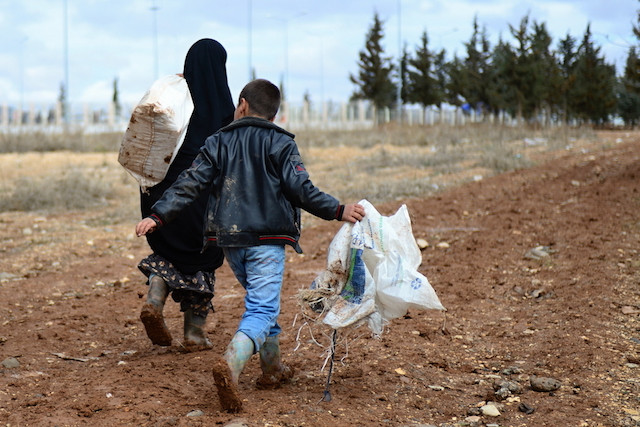The prosecution service did not respond to Delano’s request for information following the publication on 26 June of an unsubstantiated interview on Rudaw of a man claiming to be Steve Duarte, a Portuguese national who lived in Luxembourg.
In the interview, the man who is being detained by the Syrian Democratic Forces says he married and started a family since after joining Isis in 2014. He is cited as saying that he is “ready to go to prison” but wants to return to Luxembourg.
The last statement from the prosecution on the matter was issued on 31 May, in which it confirmed the presence of a suspected Isis fighter from Luxembourg, of Portuguese nationality, who had lived in Luxembourg, in a camp in Syria. “At this stage, the prosecution is unable to provide further information considering an investigation is underway.”
No comment
Responding to a parliamentary question on Thursday, foreign affairs minister Jean Asselborn (LSAP) said that because of the separation of powers between government and the prosecution, he was not able to comment on the prosecution's intentions.
He said only: “Any foreign terrorist fighter who returns from a conflict zone to Luxembourg and who is known to the authorities will be monitored by security authorities and, if applicable, prosecuted under law,” the minister wrote.
According to Asselborn, a reform of the Luxembourg law to adhere to the EU directive on fighting terrorism, is underway. The reformed law would strengthen the legal framework in relation to the movement, recruitment and financing of foreign terrorist fighters. Furthermore, since 2017 the not-for-profit SOS Radicalisation has operated a cell working to curb radicalisation in Luxembourg, and in future it is planned that it will help rehabilitate returning fighters.
55,000 people detained
As Isis’ self-proclaimed caliphate in Iraq and Syria was brought to an end this year, some 55,000 suspects and their families have been detained in both countries. The question of what to do with these people has divided countries. According to the FT, UN human rights high commissioner Michelle Bachelet said in June that states should take responsibility for their own nationals, adding that, “Accountability, with fair trials, protects societies from future radicalisation and violence.” She stressed that family members who are not prosecuted should be allowed to return and that children of Isis fighters had suffered “grievous violations of their rights.”
The FT says that so far, Australia, the US, Germany, Netherlands and Belgium have brought back a small number of children. The UK, meanwhile, revoked the citizenship of Shamima Begum, who left her home aged 15 to join Isis. Weeks later her newborn son died in the camp where she was living.
